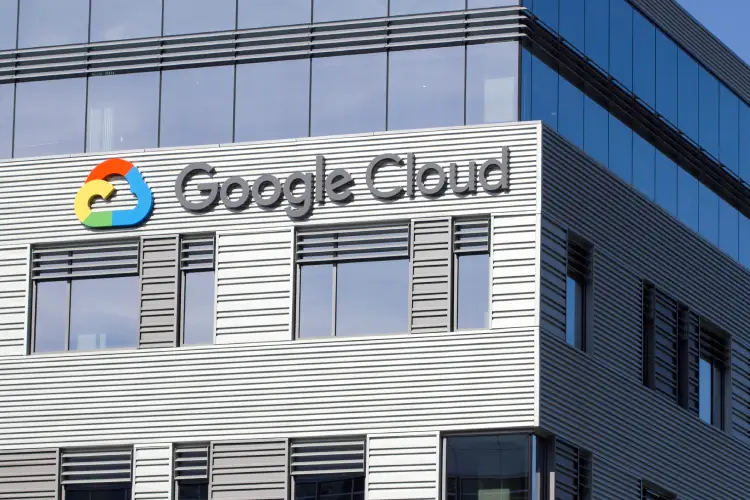
Google Cloud today launched a host of new features which will allow customers to more accurately measure the carbon footprint of cloud deployments and use its platform (GCP) to tackle environmental issues across their businesses. As the climate crisis deepens, sustainability features could become a key differentiator in the public cloud market, where Google is looking to build its market share.

At its Google Cloud Next virtual conference, which started today, the tech giant has put a big emphasis on sustainability, with a series of announcements of new products and features. Carbon Footprint is a calculator which enables all Google Cloud users to measure the gross carbon footprint of the cloud computing resources they are using. This includes all the information required by auditors to ensure businesses are complying with GHG protocols, the most commonly used accounting standard for measuring greenhouse gases. Google says this tool is already being used by customers including L’Oreal and HSBC
Elsewhere, Google has introduced a new feature, Unattended Project Recommender, that estimates the carbon emissions that can be saved by removing idle resources from the cloud. Google is also making its satellite imaging database, Earth Engine, available on GCP for the first time, and says it is already working with businesses to develop “new solutions for responsible commodity sourcing, sustainable land management and carbon emissions reduction.” It also announced several partnerships with businesses and non-governmental organisations to increase the amount of sustainability related datasets in Earth Engine.
Is Google Cloud ahead of the game on sustainability?
As reported by Tech Monitor, Google says GCP has been net-zero since 2017, but like the other major cloud providers, it only achieves this by off-setting its use of fossil fuels through power purchase agreements, where it buys renewable energy of an equivalent amount to its fossil fuel use and then sells it back to the power grid at the wholesale price. This is why a tool like the Carbon Footprint is necessary for businesses that want to truly understand the emissions generated by their cloud usage.
Nonetheless, Google does make more sustainability data available than its two biggest rivals in the public cloud market – Microsoft Azure and AWS, Amazon’s cloud division. Users can view the emissions of the company’s data centres around the world through the Google Cloud region picker, and make decisions about where workloads are run based on this. Azure offers a carbon footprint calculator for its data centres, though this information isn’t publicly available, while AWS has no such function.
Sid Nag, research vice president at Gartner, says Google’s new features reflect the fact that sustainability has been a priority for the company for some time. “I think this a continuation of what Google has been investing in over a number of years,” he says. “It does have a track record for focusing on sustainability, and now with ESG (environmental, social and governance) issues becoming front and centre for a lot of businesses, now is a good time to make this push.”
Is sustainability a differentiator for cloud computing buyers?
Google’s focus on sustainability could be good for business, as well as the planet. GCP trails a distant third in the public cloud market behind AWS and Azure, which enjoy 56% and 33% of the market respectively, compared to Google Cloud’s 15%, according to figures from Forrester Research. Though GCP is growing its market share, progress has thus far been slow.
Nag says both Azure and AWS are taking steps to address the sustainability needs of clients, but Google's new products could give it the edge in this area. In June, Microsoft unveiled Microsoft Cloud for Sustainability, a set of reporting tools allowing users to track emissions. AWS has yet to launch a similar product.
We're seeing a lot of pushback from companies who say they don't want to be doing business with a cloud provider that doesn't make sustainability a cornerstone of their offering.
Sid Nag, Gartner
This is important because, for IT buyers, sustainability is becoming a key factor when making decisions around cloud deployments, Nag says. Indeed, 84% of tech leaders surveyed in the Tech Monitor tech leaders agenda earlier this year said improving the efficiency of IT infrastructure was a primary focus for their teams. "We're seeing a lot of pushback from companies who say they don't want to be doing business with a cloud provider that doesn't make sustainability a cornerstone of their offering," Nag adds.
This increased focus on sustainability among buyers also has implications for the wider tech supply chain, Nag says. "The hyperscalers are looking at their entire ecosystems of vendors and suppliers and telling them they have to match up [on sustainability]," he says. "They're pushing pretty hard to make sure they meet the required environmental standards, and this is one of the reasons you're seeing new low-power chipsets and better cooling technologies changing the make-up of data centres."






